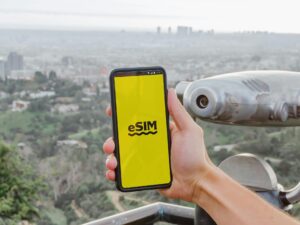Content provided by Visit Dubai
What is the Holy Month of Ramadan?
One of the five pillars of Islam – the other four being faith (shahadah), prayer (salah), charitable giving (zakat), and the pilgrimage to Makkah (Hajj) – Ramadan is the ninth and most important month of the Islamic lunar calendar. Ushering in a period of great spiritual and social awareness, it is the holiest time of the year for Muslims around the world and commemorates when the first verses of the Holy Qur’an were revealed to Prophet Muhammad (peace be upon him). Muslims observe the Holy Month by fasting, offering prayers, charity and spending time with loved ones.
When does Ramadan take place?
As it is based on the Islamic lunar calendar, the dates of Ramadan vary from year to year, but in 2024 it is estimated to begin on 11 March and end on 9 April. The exact day Ramadan starts is officially announced when the crescent moon of the ninth month (of the traditional Islamic calendar) rises. Ramadan lasts for either 29 or 30 days, until the next new crescent moon has been sighted.
How is it observed?
A significant part of Ramadan is daily fasting throughout the Holy Month, with followers abstaining from all food and beverage during daylight hours. Children who have not reached puberty, the elderly, those who are physically or mentally incapable of fasting, pregnant women, breastfeeding mothers and travelers are exempt.
Before sunrise and ahead of the daily fast, the suhoor early meal is held. After sunset, the iftar meal then breaks the fast. These meals are one of the best ways to observe the Holy Month with friends and family. In fact, once the sun sets on a day of fasting, it’s a joyous occasion filled with socialising. During Ramadan, a sense of spirituality settles in and it becomes a time for family and friends to come together and invite members of the community to share a meal with them. This also serves as an opportune time for non-Muslims to learn more about Islam, its traditions and how it promotes empathy, compassion, charity and spirituality.
Do I need to fast?
Regardless of your faith, Ramadan can be a special month in Dubai. Fasting is not required for non-Muslims. However, you are welcome to try fasting for a day and everyone is respectfully asked to be considerate of those who are practising. Non-fasters don’t have to go hungry – for restaurants and dining areas it is business as usual.
Ramadan etiquette for non-Muslims
Out of respect for this deeply spiritual time for Muslims in Dubai, visitors coming to experience the city during Ramadan can observe some of the points of etiquette below to show their consideration:
- Exercise mindfulness during Ramadan by avoiding consuming food and drink if you’re around people who are fasting.
- Try to be especially considerate and respectful during Ramadan.
- Dress modestly and cover your shoulders and knees in loose-fitting clothing .
Timings during Ramadan
Make the most of the evenings by taking advantage of extended mall hours, transportation services and key attractions during Ramadan in Dubai. Historically shops and restaurants would close in the day during the Holy Month, but Dubai is fully open and the opening hours of malls and dining outlets are even extended to past midnight to cater for those wanting to socialise with families and friends after the daily fast. Visitors looking to enjoy Dubai’s famous weekend brunches or visit the different attractions around the city will still be able to do so.
What are iftar and suhoor?

One of the best ways to observe the Holy Month is to join an iftar (after sunset) or suhoor (before sunrise) meal with friends. There are also interesting drinks served during Ramadan, with qamardeen (apricot), jellab (grape molasses and rose water) and Vimto (a sugary berry-based drink) on the menu. If you are visiting the city, check with your hotel concierge about nearby restaurants that offer special Ramadan meals and traditional Emirati cuisine, as most menus will showcase the delicious diversity of regional delicacies during the Holy Month. If you’re lucky enough to be invited to an Emirati friend’s home, be prepared for a night of great food and conversation that often lasts through to the early hours.
Iftar in Dubai
As the sun sets (Maghrib prayer), a pause falls over the city until the roar of cannons signals the end of the fast, and the proclamation of iftar. People across Dubai join Muslims around the world who traditionally break their fast like the Prophet Muhammad (PBUH) did, with a sip of water and some dates. At dusk, twinkling Arabesque decorations come aglow all over the city throughout the Holy Month.
Popular iftar options include Ninive at Jumeirah Emirates Towers (Dhs285 per person), Asateer Tent at Atlantis, The Palm (Dhs270 to Dhs290), SLS Dubai’s 75th-floor Arabic-style tent in Business Bay (Dhs225), and Oasis Food Hall at Expo City Dubai (from Dhs90). For a unique experience, try Frying Pan Adventures’s Dubai Souks Iftar Tour (Dhs472.50) or head into the desert for iftar at Al Khayma Heritage Camp (Dhs350) and Al Hadheerah at Bab Al Shams Desert Resort (Dhs399). The Majlis at Dubai World Trade Centre, one of Dubai’s largest venues, offers three large dedicated iftar and suhoor areas with prayer rooms, kids play area, arrival service and VIP parking (iftar from Dhs85 to Dhs190; suhoor from Dhs500 to Dhs800 minimum spend).
Suhoor in Dubai
Before dawn, Muslims awake to pray and partake in suhoor together in preparation for a day of fasting, which starts with the morning adhaan or ‘call to prayer’. Suhoor can be enjoyed at home with the family or by visiting a special tent or restaurant to fuel up before the first light of the day, and the Fajr prayer. Restaurants and hotels across the city offer suhoor, to which Muslims and non-Muslims alike are welcome. While some continue until just before dawn, many are between 9pm and 1am.
Popular places for suhoor include the Hikayat Ramadan Garden at Palazzo Versace Dubai (Dhs200 minimum spend per person, excludes shisha), Ninive at Jumeirah Emirates Towers (Dhs285 per person), and Asateer Tent at Atlantis, The Palm (Dhs180 minimum spend per person).
How to celebrate Ramadan in Dubai
Ramadan markets and attractions for the family

The Ramadan Souq at historic Old Municipality Street in Deira celebrates the arrival of the Holy Month and will run until 9 March. Organised by Dubai Municipality, the souq features a traditional market offering various items and gadgets essential for Ramadan preparations.
From 15 March to 4 April, the Ramadan District at Plaza Terrace, Jumeirah Emirates Towers, will transform into a hub featuring homegrown brands, must-see entertainment and unique concepts. Showcasing the best of Emirati and regional culture, a free-to-enter market will offer a wide range of culinary products, homeware items, apparel and accessories from some of the region’s most celebrated designers and artists. This year’s Ramadan Majlis will be themed around sustainable dining and community cohesion, a collaborative effort with Ne’ma – National Food Loss and Waste Initiative, Fresh On Table, and the Zayed Higher Organization for People of Determination.
Hai Ramadan, from 9 March to 8 April at Expo City Dubai, features a range of activities and experiences that celebrate the spirit of Ramadan, including live performances, traditional food, and cultural exhibitions. Families can sample a variety of traditional Arabic dishes, shop at a bustling marketplace and enjoy live entertainment and cultural exhibitions.
Ramadan Wonders at Global Village is a popular destination for families during the Holy Month. This multicultural festival park brings together the best of the world’s cultures, with pavilions representing different countries and regions. During Ramadan, Global Village offers visitors an immersive experience of the Holy Month, including traditional iftars, live cultural performances, and religious activities. The park also has a range of shopping options, selling everything from local handicrafts to international brands.
Embrace culture and tradition

Visitors hoping to gain knowledge about the traditions and customs of the UAE can visit Sheikh Mohammed Centre for Cultural Understanding (SMCCU), which was created to bridge the cultural knowledge gap and allow for greater cultural understanding. Located within the Al Fahidi Historical Neighbourhood, visitors to SMCCU can enjoy a range of activities from tasting traditional cuisine to discussions with Emiratis about local life. During the Holy Month, special iftar sessions (Dhs195) are held where visitors can experience what Ramadan is like for locals – including breaking the fast with dates, a mosque tour where the SMCCU hosts will explain how and why Muslims pray, followed by a sit-down iftar. SMCCU also facilitates visits to Dubai’s iconic Jumeirah Mosque (Dhs40). Welcoming visitors of all faiths, Jumeirah Mosque hosts guided tours six days a week (closed Fridays).
The Etihad Museum is dedicated to the history of the United Arab Emirates and features interactive exhibits and multimedia displays. During Ramadan, the museum also offers special events and activities that celebrate Emirati culture and traditions.
One significant custom in Ramadan is the ritual firing of cannons at sunset, known as midfa al iftar, which can be heard all around the city. In Dubai, the police force operates the special cannons with blank cartridges at the city’s popular tourist spots, as curious visitors gather to witness the spectacle. The sound echoes across the emirate from locations that include Burj Khalifa, and the Eid prayer grounds in Al Mankhool and Al Baraha. Meanwhile, you’ll find most tourists gathering at Madinat Jumeirah’s Fort Island, where one of the city’s iconic iftar cannons is ceremoniously fired at sunset.
Parks and architecture
Dubai’s Quranic Park offers insights into the Holy Qur’an and enhances awareness of the Islamic values of peace, love and tolerance. Spread over 64 hectares, the park has four main sections – The Miracles Cave, The Greenhouse, The Lake, and The Orchards – and features 51 types of plants mentioned in the Holy Qur’an.
Ramadan is also a great time to learn about Dubai’s traditional architecture. Located along Dubai Creek, Al Fahidi Historical Neighbourhood is home to wind towers, called barajeel, more than 50 former houses, and winding streets where you can discover a range of cultural activities, museums, art galleries, special events and traditional food.
What happens at the end of Ramadan?
Eid Al Fitr, the festival of breaking the fast, marks the end of the Holy Month. In 2024, it is expected to fall on 10 April. One of the easiest ways to get into the spirit of Eid is to simply wish people in the city an ‘Eid Mubarak’, which translates to ‘blessed Eid’. But beyond that, there’s plenty of opportunity to take part in the celebrations and join the community in marking this important Islamic holiday.
Families usually start the day with an early wake-up and morning prayers inside their home or at a nearby mosque. This is then followed by a lunchtime feast with friends and family to reflect on the previous month of Ramadan. It’s also customary to give gifts of money to children and donate to the less fortunate during this time.
While most of those celebrating tend to spend most of the first day of Eid at home or at the home of friends or family, Dubai comes alive with vibrant celebrations, exciting activities, traditional dance performances, live music and special shows in all the major public spaces across the city.
To learn more about the Holy Month of Ramadan in Dubai, please visit: www.visitdubai.com






